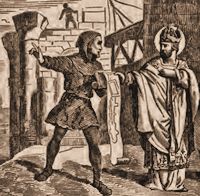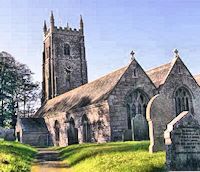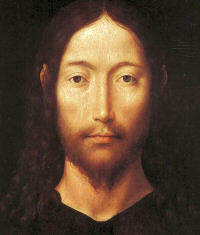Make your gift today!
Help keep Catholics around the world educated and informed.
Already donated? Log in to stop seeing these donation pop-ups.
Easter: April 15th
Friday of the Third Week of Easter
Other Commemorations: St. Paternus, Bishop (RM)
» Enjoy our Liturgical Seasons series of e-books!
The Jews started arguing with one another: "How can this man give us his flesh to eat? they said. Jesus replied: "I tell you most solemnly, if you do not eat the flesh of the Son of Man and drink his blood, you will not have life in you. Anyone who does eat my flesh and drink my blood has eternal life, and I shall raise him up on the last day. For my flesh is real food and my blood is real drink." — John 6:52-56
Spirit of peace and meekness, have mercy on us. Litany of the Holy Spirit for the election of a holy pope.
“I am with you always...” (Mt 28:20)
16. All these dimensions of the Eucharist come together in one aspect which more than any other makes a demand on our faith: the mystery of the “real” presence. With the entire tradition of the Church, we believe that Jesus is truly present under the Eucharistic species. This presence—as Pope Paul VI rightly explained—is called “real” not in an exclusive way, as if to suggest that other forms of Christ's presence are not real, but par excellence, because Christ thereby becomes substantially present, whole and entire, in the reality of his body and blood.(14) Faith demands that we approach the Eucharist fully aware that we are approaching Christ himself. It is precisely his presence which gives the other aspects of the Eucharist — as meal, as memorial of the Paschal Mystery, as eschatological anticipation — a significance which goes far beyond mere symbolism. The Eucharist is a mystery of presence, the perfect fulfilment of Jesus' promise to remain with us until the end of the world. — Mane Nobiscum, Domine
St. Paternus
 St. Paternus was born at Poitiers, about the year 482. His father, Patranus, with the consent of his wife, went into Ireland, where he ended his days in holy solitude. Paternus, fired by his example, embraced a monastic life in the abbey of Marnes. After some time, burning with a desire of attaining to the perfection of Christian virtue, he passed over to Wales, and in Cardiganshire founded a monastery called Llan-patern-vaur, or the church of the great Paternus.
St. Paternus was born at Poitiers, about the year 482. His father, Patranus, with the consent of his wife, went into Ireland, where he ended his days in holy solitude. Paternus, fired by his example, embraced a monastic life in the abbey of Marnes. After some time, burning with a desire of attaining to the perfection of Christian virtue, he passed over to Wales, and in Cardiganshire founded a monastery called Llan-patern-vaur, or the church of the great Paternus.
He made a visit to his father in Ireland, but being called back to his monastery of Marnes, he soon after retired with St. Scubilion, a monk of that house, and embraced an austere anchoretical life in the forests of Scicy, in the diocese of Coutances, near the sea, having first obtained leave of the bishop and of the lord of the place. This desert, which was then of great extent, but which has been since gradually gained upon by the sea, was anciently in great request among the Druids. St. Paternus converted to the faith the idolaters of that and many neighboring parts, as far as Bayeux, and prevailed upon them to demolish a pagan temple in this desert, which was held in great veneration by the ancient Gauls.
 In his old age he was consecrated Bishop of Avranches by Germanus, Bishop of Rouen. Some false brethren having created a division of opinion among the bishops of the province with respect to St. Paternus, he preferred retiring rather than to afford any ground for dissension, and, after governing his diocese for thirteen years, he withdrew to a solitude in France, and there ended his days about the year 550.
In his old age he was consecrated Bishop of Avranches by Germanus, Bishop of Rouen. Some false brethren having created a division of opinion among the bishops of the province with respect to St. Paternus, he preferred retiring rather than to afford any ground for dissension, and, after governing his diocese for thirteen years, he withdrew to a solitude in France, and there ended his days about the year 550.
—Excerpted from Lives of the Saints, by Alban Butler, Benziger Bros. ed. [1894]
Highlights and Things to Do:
- Read more about St. Paternus:






